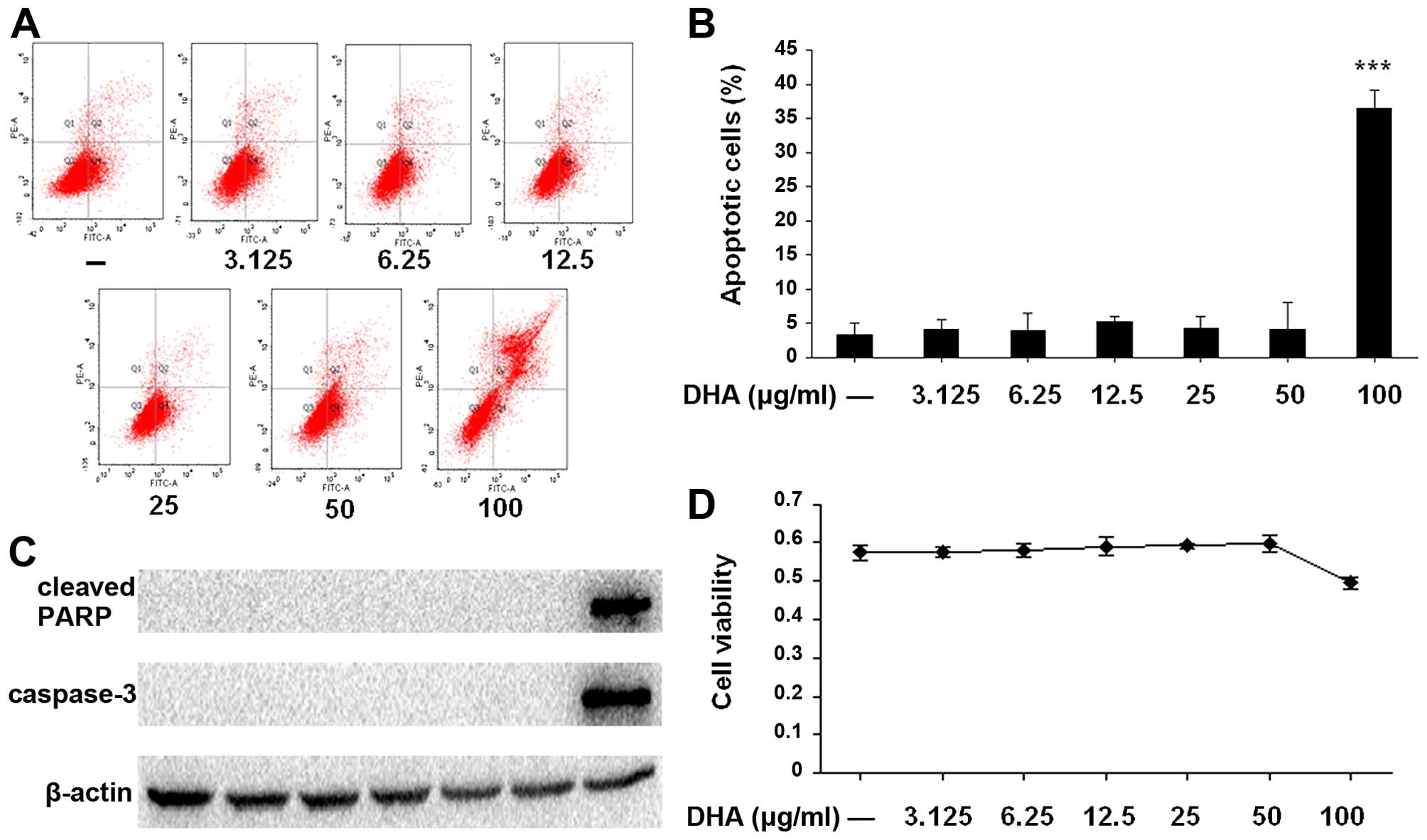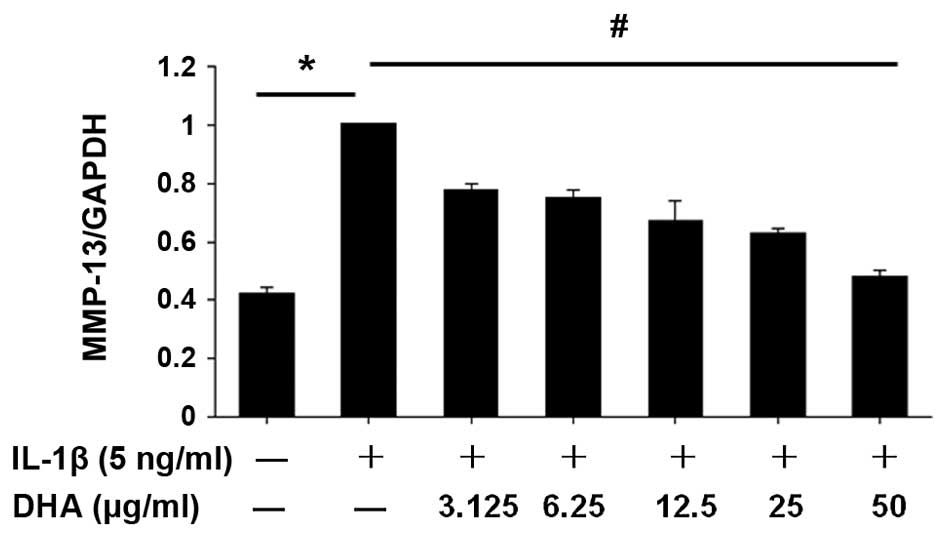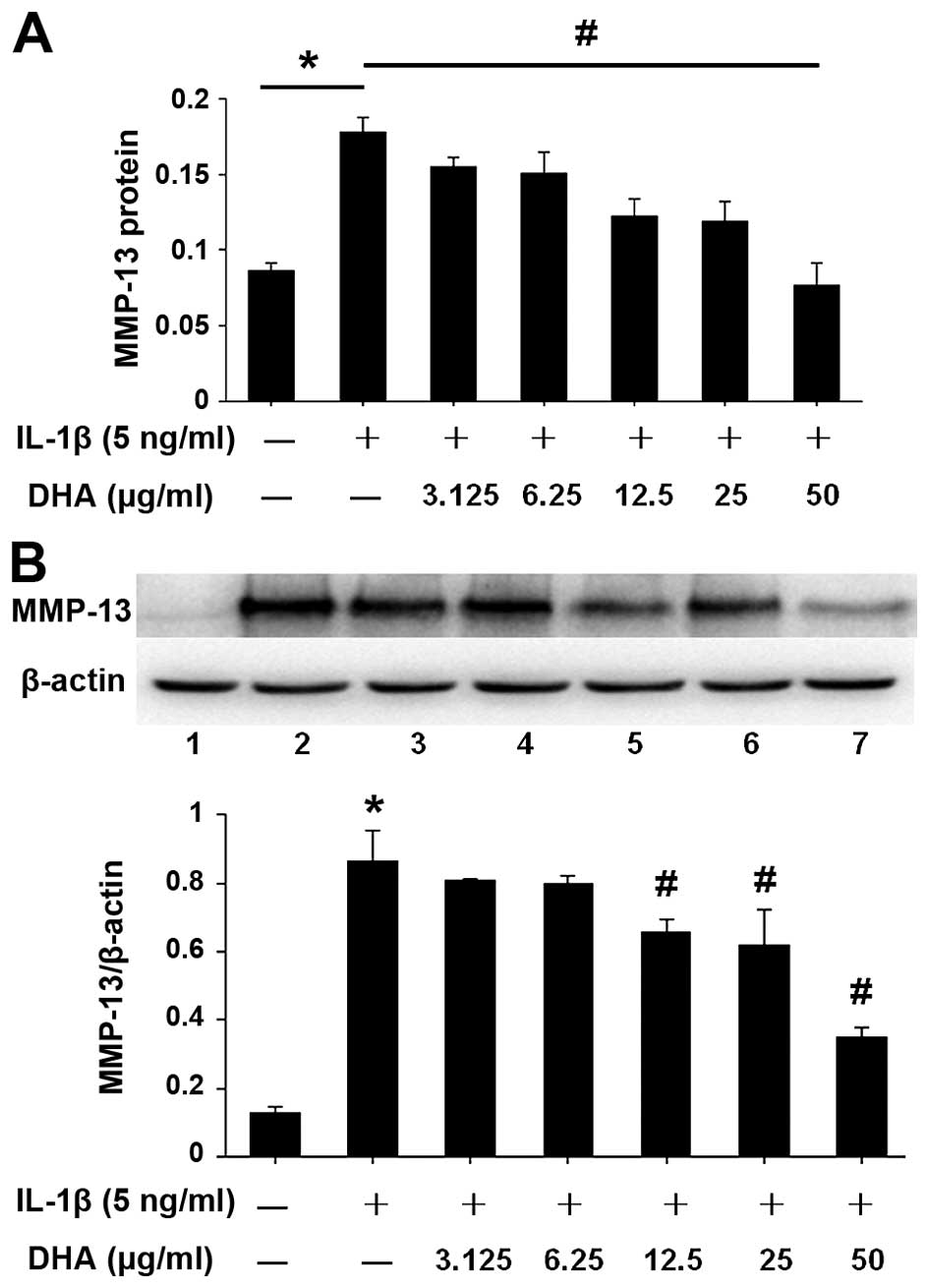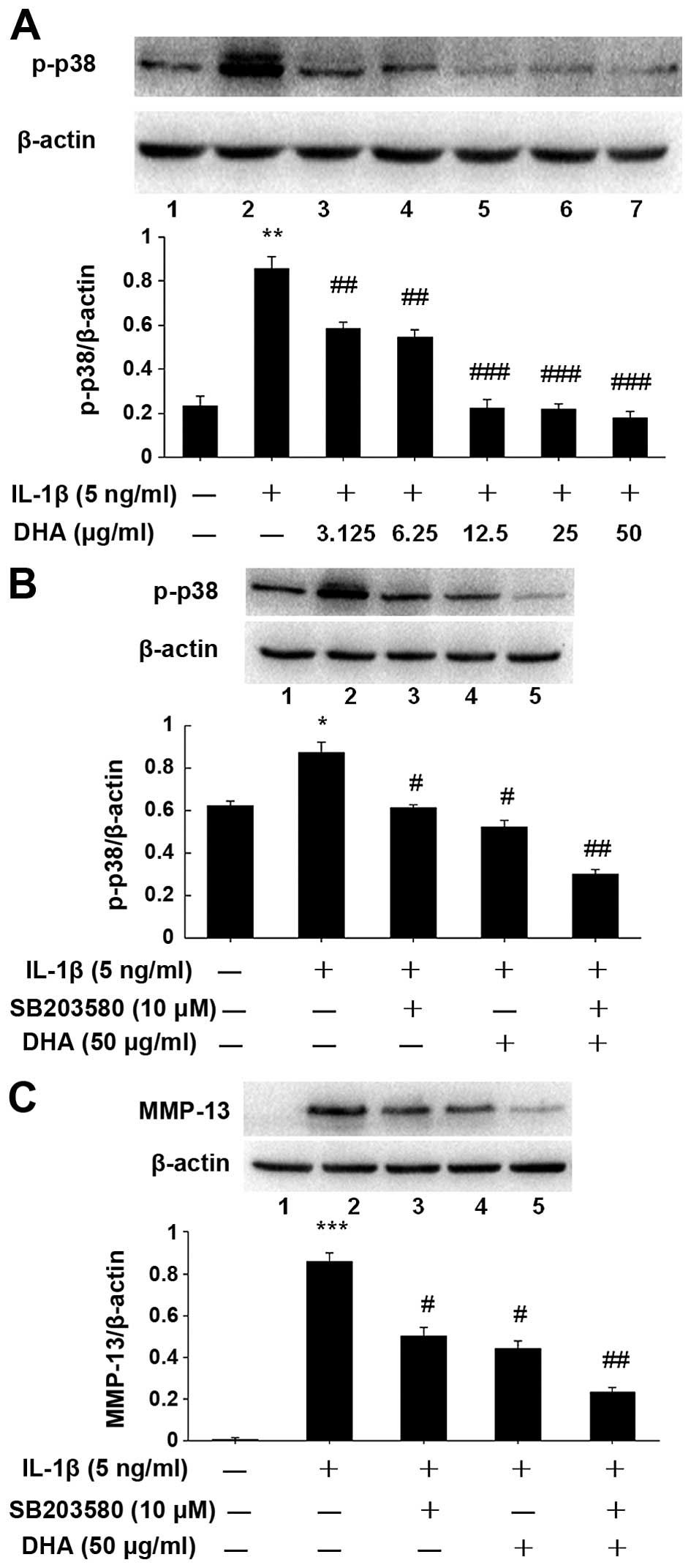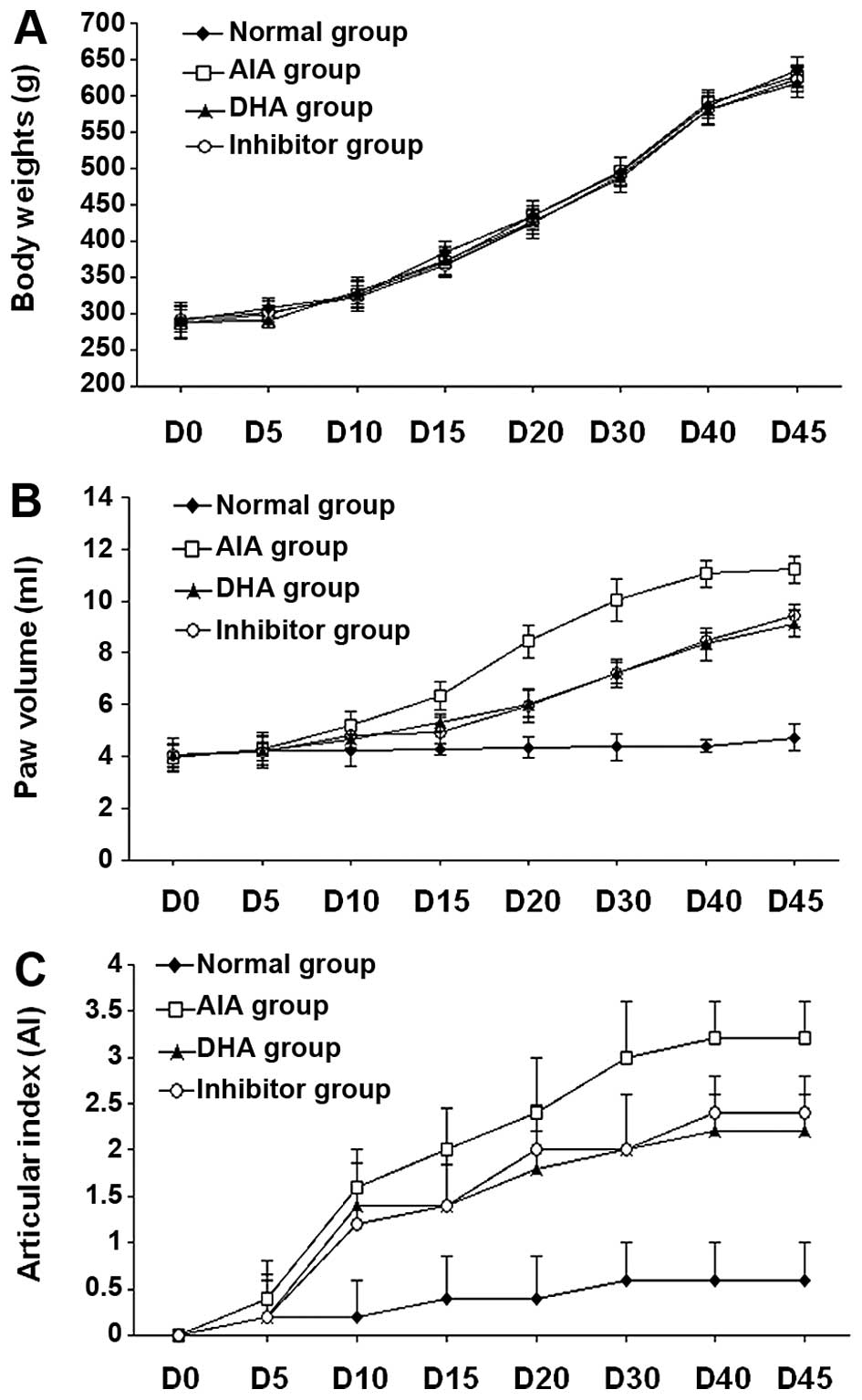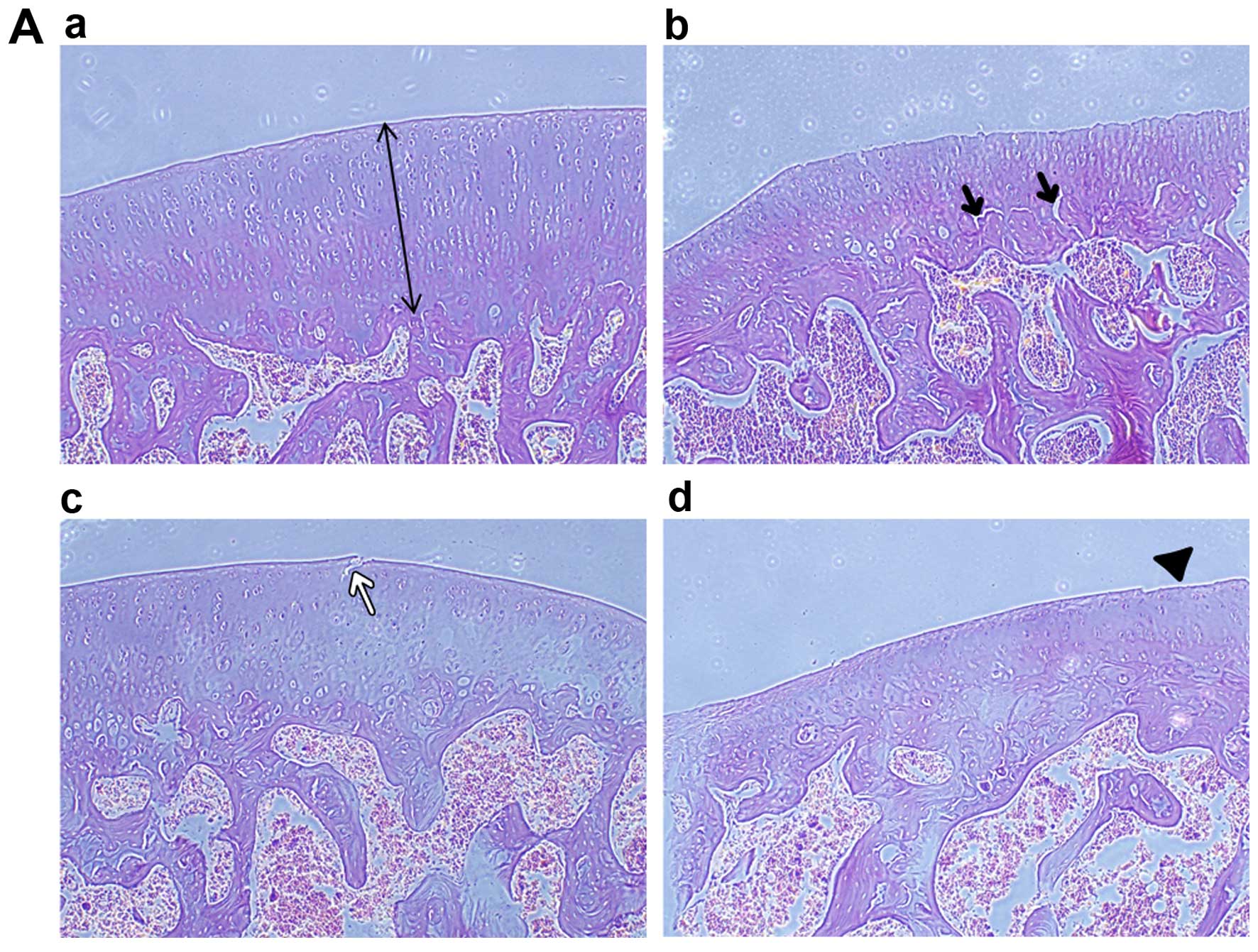|
1
|
Moyer RF, Ratneswaran A, Beier F and
Birmingham TB: Osteoarthritis year in review 2014: mechanics -
basic and clinical studies in osteoarthritis. Osteoarthritis
Cartilage. 22:1989–2002. 2014. View Article : Google Scholar : PubMed/NCBI
|
|
2
|
Fibel KH, Hillstrom HJ and Halpern BC:
State-of-the-Art management of knee osteoarthritis. World J Clin
Cases. 3:89–101. 2015. View Article : Google Scholar : PubMed/NCBI
|
|
3
|
Troeberg L and Nagase H: Proteases
involved in cartilage matrix degradation in osteoarthritis. Biochim
Biophys Acta. 1824:133–145. 2012. View Article : Google Scholar
|
|
4
|
Takaishi H, Kimura T, Dalal S, Okada Y and
D'Armiento J: Joint diseases and matrix metalloproteinases: A role
for MMP-13. Curr Pharm Biotechnol. 9:47–54. 2008. View Article : Google Scholar : PubMed/NCBI
|
|
5
|
Mabey T and Honsawek S: Cytokines as
biochemical markers for knee osteoarthritis. World J Orthop.
6:95–105. 2015. View Article : Google Scholar : PubMed/NCBI
|
|
6
|
Kapoor M, Martel-Pelletier J, Lajeunesse
D, Pelletier JP and Fahmi H: Role of proinflammatory cytokines in
the pathophysiology of osteoarthritis. Nat Rev Rheumatol. 7:33–42.
2011. View Article : Google Scholar
|
|
7
|
Goldring MB and Otero M: Inflammation in
osteoarthritis. Curr Opin Rheumatol. 23:471–478. 2011. View Article : Google Scholar : PubMed/NCBI
|
|
8
|
Garvican ER, Vaughan-Thomas A, Redmond C,
Gabriel N and Clegg PD: MMP-mediated collagen breakdown induced by
activated protein C in equine cartilage is reduced by
corticosteroids. J Orthop Res. 28:370–378. 2010.
|
|
9
|
Houard X, Goldring MB and Berenbaum F:
Homeostatic mechanisms in articular cartilage and role of
inflammation in osteoarthritis. Curr Rheumatol Rep. 15(375)2013.
View Article : Google Scholar : PubMed/NCBI
|
|
10
|
Shi J, Schmitt-Talbot E, DiMattia DA and
Dullea RG: The differential effects of IL-1 and TNF-alpha on
proinflammatory cytokine and matrix metalloproteinase expression in
human chondrosarcoma cells. Inflamm Res. 53:377–389. 2004.
View Article : Google Scholar : PubMed/NCBI
|
|
11
|
Gebauer M, Saas J, Sohler F, Haag J, Soder
S, Pieper M, Bartnik E, Beninga J, Zimmer R and Aigner T:
Comparison of the chondrosarcoma cell line SW1353 with primary
human adult articular chondrocytes with regard to their gene
expression profile and reactivity to IL-1beta. Osteoarthritis
Cartilage. 13:697–708. 2005. View Article : Google Scholar : PubMed/NCBI
|
|
12
|
Tetsunaga T, Nishida K, Furumatsu T,
Naruse K, Hirohata S, Yoshida A, Saito T and Ozaki T: Regulation of
mechanical stress-induced MMP-13 and ADAMTS-5 expression by RUNX-2
transcriptional factor in SW1353 chondrocyte-like cells.
Osteoarthritis Cartilage. 19:222–232. 2011. View Article : Google Scholar
|
|
13
|
Tabbaa M, Golubic M, Roizen MF and
Bernstein AM: Docosahexaenoic acid, inflammation, and bacterial
dysbiosis in relation to periodontal disease, inflammatory bowel
disease, and the metabolic syndrome. Nutrients. 5:3299–3310. 2013.
View Article : Google Scholar : PubMed/NCBI
|
|
14
|
Raphael W and Sordillo LM: Dietary
polyunsaturated fatty acids and inflammation: The role of
phospholipid biosynthesis. Int J Mol Sci. 14:21167–21188. 2013.
View Article : Google Scholar : PubMed/NCBI
|
|
15
|
Caplan MS and Jilling T: The role of
polyunsaturated fatty acid supplementation in intestinal
inflammation and neonatal necrotizing enterocolitis. Lipids.
36:1053–1057. 2001. View Article : Google Scholar : PubMed/NCBI
|
|
16
|
Baker KR, Matthan NR, Lichtenstein AH, Niu
J, Guermazi A, Roemer F, Grainger A, Nevitt MC, Clancy M, Lewis CE,
et al: Association of plasma n-6 and n-3 polyunsaturated fatty
acids with synovitis in the knee: the MOST study. Osteoarthritis
Cartilage. 20:382–387. 2012. View Article : Google Scholar : PubMed/NCBI
|
|
17
|
Ishijima M, Kaneko H and Kaneko K: The
evolving role of biomarkers for osteoarthritis. Ther Adv
Musculoskelet Dis. 6:144–153. 2014. View Article : Google Scholar : PubMed/NCBI
|
|
18
|
Calder PC: Polyunsaturated fatty acids,
inflammation, and immunity. Lipids. 36:1007–1024. 2001. View Article : Google Scholar : PubMed/NCBI
|
|
19
|
Zainal Z, Longman AJ, Hurst S, Duggan K,
Caterson B, Hughes CE and Harwood JL: Relative efficacies of
omega-3 polyunsaturated fatty acids in reducing expression of key
proteins in a model system for studying osteoarthritis.
Osteoarthritis Cartilage. 17:896–905. 2009. View Article : Google Scholar : PubMed/NCBI
|
|
20
|
Schmitt D, Tran N, Peach J, Bauter M and
Marone P: Toxicologic evaluation of DHA-rich algal oil:
Genotoxicity, acute and subchronic toxicity in rats. Food Chem
Toxicol. 50:3567–3576. 2012. View Article : Google Scholar : PubMed/NCBI
|
|
21
|
Shahrara S, Proudfoot AE, Woods JM, Ruth
JH, Amin MA, Park CC, Haas CS, Pope RM, Haines GK, Zha YY, et al:
Amelioration of rat adjuvant-induced arthritis by Met-RANTES.
Arthritis Rheum. 52:1907–1919. 2005. View Article : Google Scholar : PubMed/NCBI
|
|
22
|
Iannitti T, Elhensheri M, Bingöl AO and
Palmieri B: Preliminary histopathological study of intra-articular
injection of a novel highly cross-linked hyaluronic acid in a
rabbit model of knee osteoarthritis. J Mol Histol. 44:191–201.
2013. View Article : Google Scholar : PubMed/NCBI
|
|
23
|
Saklatvala J: Inflammatory signaling in
cartilage: MAPK and NF-kappaB pathways in chondrocytes and the use
of inhibitors for research into pathogenesis and therapy of
osteoarthritis. Curr Drug Targets. 8:305–313. 2007. View Article : Google Scholar : PubMed/NCBI
|
|
24
|
Gao SC, Yin HB, Liu HX and Sui YH:
Research progress on MAPK signal pathway in the pathogenesis of
osteoarthritis. Zhongguo Gu Shang. 27:441–444. 2014.In Chinese.
PubMed/NCBI
|
|
25
|
Amir M, Somakala K and Ali S: p38 MAP
kinase inhibitors as anti inflammatory agents. Mini Rev Med Chem.
13:2082–2096. 2013. View Article : Google Scholar : PubMed/NCBI
|
|
26
|
Okubo M and Okada Y: Destruction of the
articular cartilage in osteoarthritis. Clin Calcium. 23:1705–1713.
2013.In Japanese. PubMed/NCBI
|
|
27
|
Malemud CJ: Matrix metalloproteinases
(MMPs) in health and disease: an overview. Front Biosci.
11:1696–1701. 2006. View
Article : Google Scholar
|
|
28
|
Liu-Bryan R: Synovium and the innate
inflammatory network in osteoarthritis progression. Curr Rheumatol
Rep. 15(323)2013. View Article : Google Scholar : PubMed/NCBI
|
|
29
|
Fernandes JC, Martel-Pelletier J and
Pelletier JP: The role of cytokines in osteoarthritis
pathophysiology. Biorheology. 39:237–246. 2002.PubMed/NCBI
|
|
30
|
Fernandes JC, Martel-Pelletier J,
Lascau-Coman V, Moldovan F, Jovanovic D, Raynauld JP and Pelletier
JP: Collagenase-1 and collagenase-3 synthesis in normal and early
experimental osteoarthritic canine cartilage: An
immunohistochemical study. J Rheumatol. 25:1585–1594.
1998.PubMed/NCBI
|
|
31
|
Mudgett JS, Hutchinson NI, Chartrain NA,
Forsyth AJ, McDonnell J, Singer II, Bayne EK, Flanagan J, Kawka D,
Shen CF, et al: Susceptibility of stromelysin 1-deficient mice to
collagen-induced arthritis and cartilage destruction. Arthritis
Rheum. 41:110–121. 1998. View Article : Google Scholar : PubMed/NCBI
|
|
32
|
Inada M, Wang Y, Byrne MH, Rahman MU,
Miyaura C, López-Otín C and Krane SM: Critical roles for
collagenase-3 (Mmp13) in development of growth plate cartilage and
in endo-chondral ossification. Proc Natl Acad Sci USA.
101:17192–17197. 2004. View Article : Google Scholar
|
|
33
|
Xue B, Yang Z, Wang X and Shi H: Omega-3
polyunsaturated fatty acids antagonize macrophage inflammation via
activation of AMPK/SIRT1 pathway. PLoS One. 7:e459902012.
View Article : Google Scholar : PubMed/NCBI
|
|
34
|
Caughey GE, Mantzioris E, Gibson RA,
Cleland LG and James MJ: The effect on human tumor necrosis factor
alpha and interleukin 1 beta production of diets enriched in n-3
fatty acids from vegetable oil or fish oil. Am J Clin Nutr.
63:116–122. 1996.PubMed/NCBI
|
|
35
|
Trebble TM, Wootton SA, Miles EA, Mullee
M, Arden NK, Ballinger AB, Stroud MA, Burdge GC and Calder PC:
Prostaglandin E2 production and T cell function after fish-oil
supplementation: Response to antioxidant cosupplementation. Am J
Clin Nutr. 78:376–382. 2003.PubMed/NCBI
|
|
36
|
Olson MV, Liu YC, Dangi B, Paul Zimmer J,
Salem N Jr and Nauroth JM: Docosahexaenoic acid reduces
inflammation and joint destruction in mice with collagen-induced
arthritis. Inflamm Res. 62:1003–1013. 2013. View Article : Google Scholar : PubMed/NCBI
|
|
37
|
Sydenham E, Dangour AD and Lim WS: Omega 3
fatty acid for the prevention of cognitive decline and dementia.
Cochrane Database Syst Rev. 6:CD0053792012.PubMed/NCBI
|
|
38
|
Schulzke SM, Patole S and Simmer K:
Long-chain polyunsaturated fatty acid supplementation in preterm
infants. Cochrane Database Syst Rev. 1:CD0003752008.PubMed/NCBI
|
|
39
|
Geng Y, Valbracht J and Lotz M: Selective
activation of the mitogen-activated protein kinase subgroups c-Jun
NH2 terminal kinase and p38 by IL-1 and TNF in human articular
chon-drocytes. J Clin Invest. 98:2425–2430. 1996. View Article : Google Scholar : PubMed/NCBI
|
|
40
|
Mengshol JA, Vincenti MP, Coon CI,
Barchowsky A and Brinckerhoff CE: Interleukin-1 induction of
collagenase 3 (matrix metalloproteinase 13) gene expression in
chondrocytes requires p38, c-Jun N-terminal kinase, and nuclear
factor kappaB: Differential regulation of collagenase 1 and
collagenase 3. Arthritis Rheum. 43:801–811. 2000. View Article : Google Scholar : PubMed/NCBI
|
|
41
|
Marcu KB, Otero M, Olivotto E, Borzi RM
and Goldring MB: NF-kappaB signaling: multiple angles to target OA.
Curr Drug Targets. 11:599–613. 2010. View Article : Google Scholar : PubMed/NCBI
|















